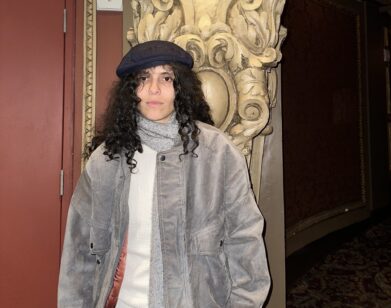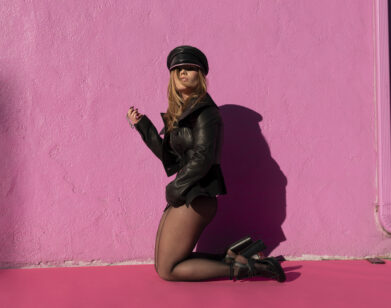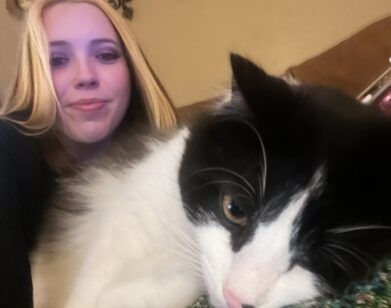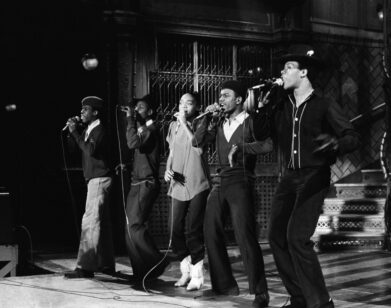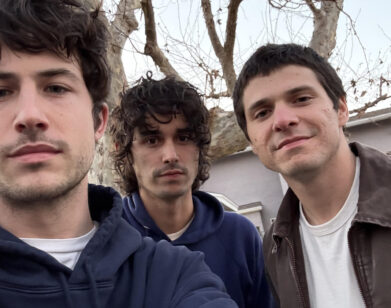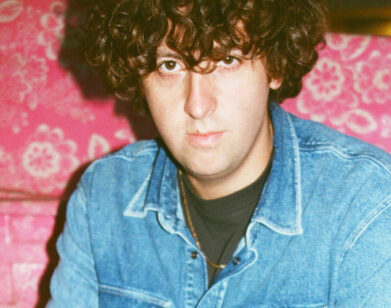OutKast is a State of Mind
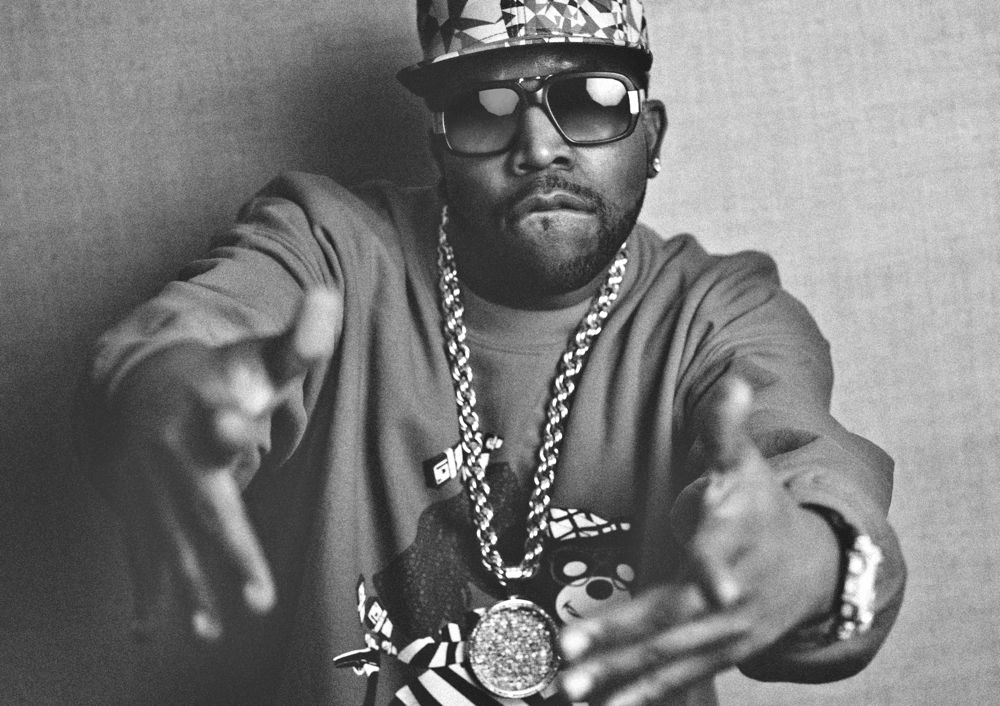
ABOVE: BIG BOI IN NEW YORK, NOVEMBER 2012. ALL CLOTHES BIG BOI’S OWN. PHOTO BY CHRISTOPHER GABELLO.
“Just getting bored with music” is Big Boi’s worst nightmare. It’s hard to imagine; the Outkast rapper, born Antwan André Patton, seems to have an insatiable appetite. His second solo album, Vicious Lies & Dangerous Rumors, features collaborations with indie electronic acts such as Phantogram, as well as rising Southern rappers (Big K.R.I.T.), established Southern Rappers (T.I. and Ludacris), the new big thing (A$AP Rocky), the last big thing (Kid Cudi), and, should he ever get his act together and release an album, the next big thing, elusive British artist Jai Paul. Over the course of our conversation, Boi references everything from Kate Bush, the artist he’d most like to interview, to the Beastie Boys, Metallica, Johnny Cash, NWA, and A Tribe Called Quest. “I like to keep it free flowing,” Patton explains. “Go outside the box and work with different artists that people wouldn’t really fathom me working with. As opposed to putting the same three or four people on the same hundred songs.” Patton likes to think of himself as “Sylvester the Unskippable; you just have to push play on my shit and ride out.”
Interview met Patton just before Thanksgiving in New York to discuss Sesame Street, “Krispy Kreme clean,” and the trouble with money. The soothing cadence of his Southern drawl made every answer seem deliberate—Big Boi talks the way he raps.

EMMA BROWN: How do you think Southern hip-hop has changed since you were coming up?
BIG BOI: It’s more dance-orientated now, not a lot of substance. But you know music goes in phases, and everything kind of comes back around.
BROWN: Is there anyone that you’re particularly excited about coming out of the South right now?
BIG BOI: Big K.R.I.T. That’s my favorite.
BROWN: Oh yes, he’s on your song “Gossip.” Is it easy to get people to collaborate with you on songs? You have a lot of exciting guest stars on Vicious Lies.
BIG BOI: Sometimes, most of the time, yeah. If schedule permits. Instead of sending songs back and forth, I like for the artist to come to Stankonia [Studio], and we’ll camp out and catch the whole vibe. It’s more personal that way then going, “Hey, I got a record I want you to get on, I’m going to send it, e-mail it back to me.” Nah.
BROWN: Do you want to meet them before you decide whether or not you want to work with them?
BIG BOI: Not really. I worked with Modest Mouse, and I hadn’t met them, but I knew about their music, and they wanted to work with us, they wanted us to produce on their album. The music is first and foremost everything—no egos, no attitude, nothing—it’s about the music. If you admire somebody for what they do, it’s just creative minds coming together to make that pure product and usually works out.
BROWN: Phantogram appears on quite a few of the songs on the new album. How did you discover them?
BIG BOI: Phantogram was a pop-up ad. I was closing my screen and the ad popped up—you never know when you do things with advertisers what’s gonna happen. It was their song “Mouthful of Diamonds,” and I was like, “Damn, this shit’s jam!” I Shazam’d it, and once I found out who it was I made it the jam of the week on my BigBoi.com site, and Sarah [Barthel] actually reached out to me and sent me some autographed vinyl of their record. We got to talking and then we did Outside Lands together, I invited them to Stankonia [Studio], and we started just rockin’ out.
BROWN: I wanted to talk to you about some of your lyrics. I was listening to “Mama Told Me” and I like your line “Krispy Kreme clean.” Is that an expression you actually use?
BIG BOI: Oh, yeah, definitely. This [points to his outfit] is Krispy Kreme clean. You ain’t seen my ruby slippers? This is Krispy Kreme clean. Always.
BROWN: I also like your reference to Oliver Twist. What’s your favorite musical and/or Dickens book?
BIG BOI: I guess Oliver Twist is my favorite Dickens book but [The] Wiz is my favorite musical, it’s souped up. Wiz or Sesame Street on Ice, I’ve seen that shit so many times with my kids I could tell you when Big Bird is going to hit the back flip and everything.
BROWN: Do you have a favorite Sesame Street character?
BIG BOI: Snuffleupagus. ‘Cause he’s smoked out: “Hi, Big Bird.” [laughs]
BROWN: In the chorus, you mention “you’re all about the dollar and I’m exonerated.” Can you tell me a little bit about what you mean?
BIG BOI: A lot of cats out here just worship money and I’m not in it for the money, I’m in it for the feeling of the music, so I don’t have to do certain things to conform to what’s going on to make that what’s popular. Outkast is the name of the group and it’s a mindframe too, you never want to be a part of what’s going on.
BROWN: Do you people are more focused on money then they used to be? Or has it always been that way?
BIG BOI: I think that’s what they’re shoving down our throats. Everything is money—count money in the videos. If that’s what you do, that’s fine, but do something else too. You’re just hearing “money, money, money, money, money” every day on the radio, it’s dumbing the kids down. The kids start worshiping the same things, materialistic items, and that’s where parenting comes in—if you have kids, you have to kind of let them know what life is really about, because if you let television and modern-day radio teach your kids, we’ll have a world full of bank robbers!
BROWN: I know Martin Luther King’s birthday is sort of like a good-luck day for you in terms of recording albums.
BIG BOI: Yes, most definitely.
BROWN: It’s coming up soon, what will you be doing if you’re not starting a new album?
BIG BOI: Actually, I already started my next album already. I might just do some work on it that day if I’m not out of town, but I might be in New Orleans for the Super Bowl. And my birthday’s around right after that, so I’m just kickin’ it.
[I’m] always recording, even when you turn [a new record] in. That’s how you tap into that new area of music—we went so far with this record—to keep pushing. I’ll still be in the studio. I just had to take my hands off the album this morning; I can’t touch it no more. They’re unmasking it on Wednesday, so I’ll be here doing press stuff. When I get home on Friday, I might take a couple of days off, might go see Cloud Atlas with my kids or something—taking me 72 hours to get a breather in—and then jump back in the studio.
BROWN: Is there a time of day when you are most productive?
BIG BOI: The day shift, we call it the day shift. You got the night shift or the day shit. Day shift, we start working around two o’clock in the afternoon and we’ll probably stop around three o’clock in the morning. Night shift, we get in around six or seven, and we’ll work till about 10 in the morning. But the night shift, there’ll just be so many characters just come through the studio and shit turns into something else. You got the day shift; people are usually asleep, so there’s not a lot of traffic, so you can kind of really focus better.
BROWN: Do you ever get writer’s block?
BIG BOI: Sometimes. All the time counts, because I’m an overthinker, I always overthink things. I can have two lines to go on a verse and I could have finished it 10 or 15 different ways and won’t be satisfied with it and it’ll take me like a couple days or might take me a couple weeks just to finish it. But that’s just my process, just trying to get perfection. I guess that type of push is what makes the music sound the way it sounds, because I just don’t settle for the first thing. I could freestyle a whole album today, I could checklist rap, rappin’ like the shit they’re doing now.
BROWN: Who’s the first person you play a new idea to?
BIG BOI: Probably my wife, ’cause she’s usually up when I’m coming home from the studio I’m like, “Hey, it’s party time, look at this, check this out.” But she’s usually the first person outside of the studio to hear. She’s honest, brutally honest. She’ll say, “It’s a’ight” or, “That shit jams.” So you’re looking for “that shit jams.”
BROWN: You’ve talked about how much the music your family played when you were growing up influenced your tastes, do you make an effort to sort of introduce your kids to a wide range of music?
BIG BOI: Most definitely, yeah. My kids listen to everything because I listen to everything, so it’s not far-fetched to hear them playing Metallica and then playing A Tribe Called Quest or NWA. I let them listen to the dirty version too—I got the shit beat out of me for listening to the 2 Live Crew album and I had the Eazy E album, you know Eazy-Duz-It, my mom whooped me and my brother’s ass so bad and it just made me want to go buy more cuss words.
BROWN: Is there any genre of music that you don’t like? Your taste seems very broad.
BIG BOI: I like it all. I guess the only country that I like is Johnny Cash and some old Willie Nelson songs.
BROWN: Do your kids think that you’re cool? Or does being their father negate that?
BIG BOI: I’m still “Daddy,” but I’m cool because we all listen to the same kind of music and hang out and they come to the studio with me. I spend a lot of time with them, so we have a real cool relationship and I wouldn’t have it any other way. To not grow up with my kids—not being in my life—that’s preposterous I don’t know how people can do that.
VICIOUS LIES AND DANGEROUS RUMORS COMES OUT TODAY, DECEMBER 11.

